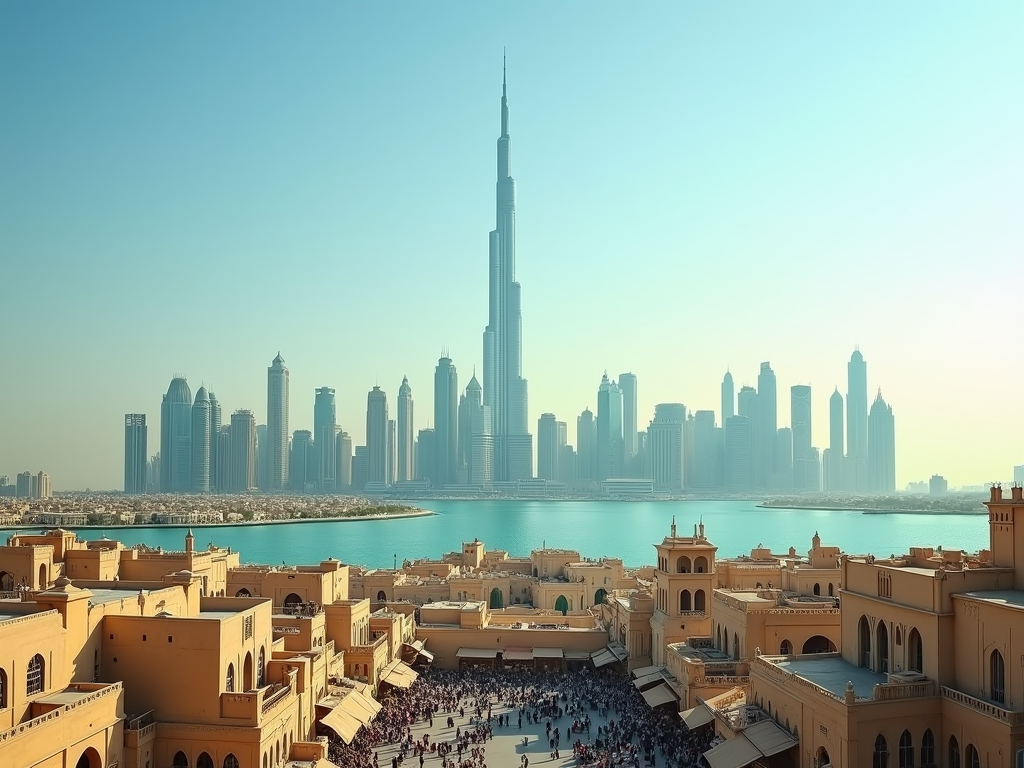Dubai’s business sector is significantly shaped by global economic trends, making it a vibrant hub for trade and investment. Factors like fluctuations in oil prices, shifts in consumer behavior, and the impact of geopolitical events all play critical roles. This article delves into how these trends influence various industries within Dubai, highlighting key areas such as tourism, real estate, and trade.
The Role of Oil Prices in Dubai’s Economy

The price of oil has long been pivotal to the economic fabric of Dubai and the broader United Arab Emirates (UAE). While the emirate has diversified its economy, oil still plays a crucial role in shaping financial stability and government budget. When global oil prices rise, it often leads to increased government spending on infrastructure and development projects, positively impacting various sectors, including construction and tourism. Conversely, a decline in oil prices can constrain budgets and lead to a slowdown in investments.
Additionally, rising oil prices can lead to increased regional stability, encouraging foreign investments. Below are some ways oil prices can influence Dubai’s economy:
- Increased government spending
- Boost in local employment opportunities
- Psychological impact on consumer confidence
- Enhanced investment in renewable energy sectors
- Influence on regional trade dynamics
The Impact of Global Trade Agreements

As a major trading hub, Dubai is profoundly affected by global trade agreements. Developments such as the Regional Comprehensive Economic Partnership (RCEP) and the African Continental Free Trade Area (AfCFTA) can directly impact trade flows and investment opportunities. These agreements often aim to reduce tariffs and promote free trade among member countries, which benefits Dubai by enhancing its position as a logistic and trade center.
Additionally, Dubai’s strategic location between Europe, Asia, and Africa enables it to act as a gateway for companies looking to enter these markets. The impacts of global trade agreements can manifest in several ways:
- Increased import and export activities
- Greater foreign direct investment (FDI)
- Diversification of available goods and services
- Enhancement of logistics and shipping services
- Creation of competitive pricing through reduced tariffs
With globalization, consumer behavior is rapidly evolving, and Dubai is no exception. The emergence of e-commerce and digital platforms has transformed how businesses interact with their customers. Consumers today demand convenience, speed, and personalization, pushing businesses in Dubai to adapt quickly to these changes. Traditional businesses have had to rethink their strategies, often developing online platforms to cater to this growing digital market.
The influence of global consumer trends can be observed in various sectors, including retail, hospitality, and food services. Here are key shifts in consumer behavior that impact Dubai’s business landscape:
- Preference for sustainability and eco-friendly products
- Increased reliance on online shopping and delivery services
- Demand for personalized customer experiences
- Greater awareness of health and wellness
- Influence of social media on purchasing decisions
Geopolitical Events and Their Consequences
Dubai’s economy is also heavily influenced by geopolitical events, as they can affect investor confidence and regional stability. Political unrest, conflicts, or changes in governance in nearby countries can lead to uncertainty that extends to Dubai’s business sector. Multinational companies with operations in the region often assess these risks carefully before making investment decisions.
Geopolitical events can lead to various outcomes, including:
- Changes in immigration policies affecting the labor market
- Impact on tourism due to safety concerns
- Fluctuation in real estate prices
- Shift in trade routes and logistics
- Increased demand for security and risk management services
Conclusion
In conclusion, global economic trends have a profound influence on Dubai’s business sector through diverse channels, including oil prices, trade agreements, consumer behavior, and geopolitical events. As a dynamic and adaptive economy, Dubai must navigate these trends to maintain its position as a global business hub. Understanding these influences not only helps local businesses adapt and thrive but also encourages foreign investment and economic diversification.
FAQ
- How does Dubai’s reliance on oil affect its economic stability?
Despite diversification efforts, fluctuations in oil prices significantly impact government budgets and overall economic health, influencing various sectors including construction and tourism. - What role do global trade agreements play in Dubai’s economy?
Global trade agreements facilitate increased trade flows, attract foreign investments, and enhance Dubai’s status as a leading logistics and trading hub. - How has consumer behavior changed in Dubai with globalization?
Consumers increasingly prefer online shopping, demand personalization, and are more conscious of sustainability and health trends, leading businesses to adapt their strategies accordingly. - What are some recent geopolitical events affecting Dubai?
Political unrest in nearby regions or changes in governance can lead to investor uncertainty, affecting tourism, real estate, and multinational company operations. - What measures can businesses take to adapt to global economic trends?
Businesses should diversify their offerings, enhance digital presence, monitor geopolitical situations, and keep abreast of consumer preferences to remain competitive.